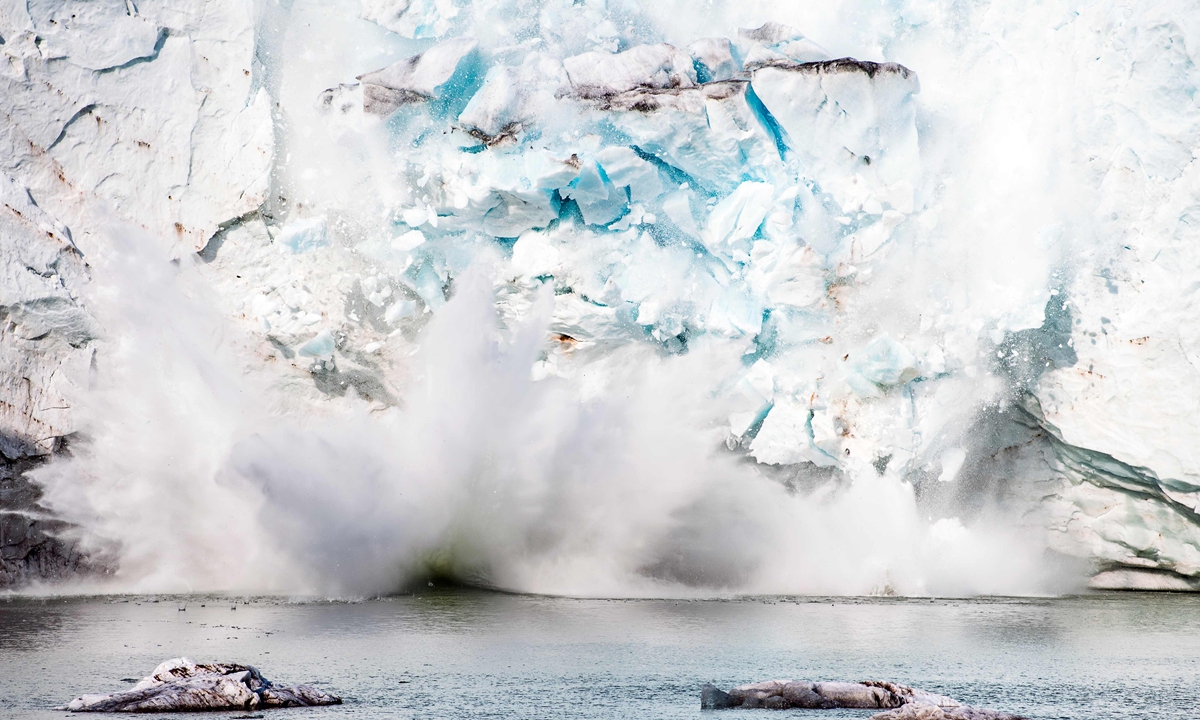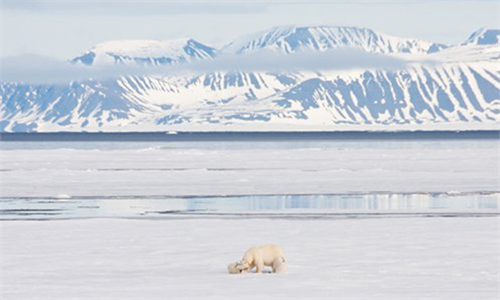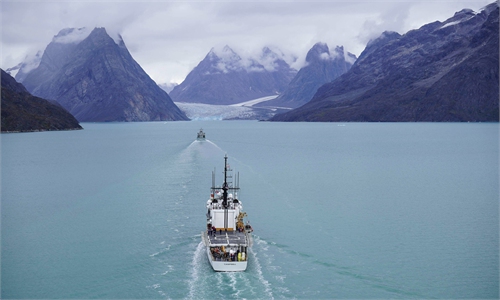Europe endured record heat and rainfall in 2020 while temperatures in Arctic Siberia soared off the charts, the European Union's climate monitoring service reported Thursday.

That means Europe was more than 2 C warmer than in a world unaltered by carbon emissions from burning fossil fuels - and far above the temperature limits enshrined in the Paris climate accord. The 2015 treaty enjoins nearly 200 nations to cap global warming at "well below" two degrees compared to mid-19th century levels, and 1.5 C if possible.
Globally, average surface temperatures have risen about 1.2 C above the pre-industrial benchmark, the report noted. The six years since 2015 are the warmest on record, as are 20 of the last 21, clear evidence of a feverish planet.
"The trend over three years, five years, 10 years is unequivocal," Jean-Noel Thepaut, director of the European Centre for Medium-Range Weather Forecasts, which includes C3S, told AFP.
"This is the big picture. It is urgent to act."
On current trends, heatwaves could make large swathes of the tropics unliveable by mid-century, and sea level rise could displace tens, perhaps hundreds of millions of people, scientists warn.
"Looking at temperature on a global scale, the last 10 to 15 years have shown an acceleration, it's the same for sea level," Thepaut said in an interview.
"For other indicators it is less clear, but all the trends are going in the wrong direction."
In the Autumn and Winter of 2020, Europe was not only warmer than usual but wetter, especially across its north-central regions.
Early October brought storm Alex, the first of the 2020-21 winter storm season.
Exceptionally abundant rainfall broke one-day records in Britain, northwestern France and in the southern Alps.
The French and Italian sides of the Maritime Alps saw daily deluges reaching more than three times the typical average for the entire month in some places.

An iceberg calving with a mass of ice breaking away from the Apusiajik glacier, near Kulusuk (aslo spelled Qulusuk), a settlement in the Sermersooq municipality located on the island of the same name on the southeastern shore of Greenland on August 17, 2019. Photo: VCG
The continent in 2020 was nearly 0.5 C hotter than the next warmest year, according to the Copernicus Climate Change Service (C3S).That means Europe was more than 2 C warmer than in a world unaltered by carbon emissions from burning fossil fuels - and far above the temperature limits enshrined in the Paris climate accord. The 2015 treaty enjoins nearly 200 nations to cap global warming at "well below" two degrees compared to mid-19th century levels, and 1.5 C if possible.
Globally, average surface temperatures have risen about 1.2 C above the pre-industrial benchmark, the report noted. The six years since 2015 are the warmest on record, as are 20 of the last 21, clear evidence of a feverish planet.
"The trend over three years, five years, 10 years is unequivocal," Jean-Noel Thepaut, director of the European Centre for Medium-Range Weather Forecasts, which includes C3S, told AFP.
"This is the big picture. It is urgent to act."
On current trends, heatwaves could make large swathes of the tropics unliveable by mid-century, and sea level rise could displace tens, perhaps hundreds of millions of people, scientists warn.
"Looking at temperature on a global scale, the last 10 to 15 years have shown an acceleration, it's the same for sea level," Thepaut said in an interview.
"For other indicators it is less clear, but all the trends are going in the wrong direction."
In the Autumn and Winter of 2020, Europe was not only warmer than usual but wetter, especially across its north-central regions.
Early October brought storm Alex, the first of the 2020-21 winter storm season.
Exceptionally abundant rainfall broke one-day records in Britain, northwestern France and in the southern Alps.
The French and Italian sides of the Maritime Alps saw daily deluges reaching more than three times the typical average for the entire month in some places.



